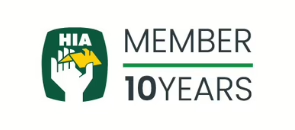The Building Industry Fairness (Security of Payment) and Other Legislation Amendment Act 2020 assented to on 23 July 2020 introduced progressive changes to the Building Industry Fairness (Security of Payment) Act 2017 (Qld) (BIF Act) and Queensland Building and Construction Commission Act 1991 (Qld) (QBCC Act). The changes will commence on a day to be fixed by proclamation in the coming months. The first tranche of changes are expected to commence on 1 October 2020. Details of the main changes are summarised below.
A. Changes to BIF Act
Chapter 3 changes to payment claims – expected commencement on 1 October 2020
- 1. Head contractor payment claims require supporting statements disclosing the status of subcontractor payments. A payment claim is still valid if there is no supporting statement; but the failure to include it attracts a maximum civil penalty of 100 units ($13,355).
- A new civil penalty applies if a respondent does not pay the amount stated in a payment schedule by the due date for payment under the contract, a maximum civil penalty of 100 units ($13,355). All contractors across the industry need to be aware of the due date for payment and time for responding with a payment schedule under their contracts. Ifno date is stated in the contract, the BIF Act default provisions apply, that being the payment schedule is due 15 business days after receipt of a claim, and the due date for payment is 10 business days after receipt of a claim (i.e. 5 days before the payment schedule is due).
- Where an adjudicator decides that the respondent must pay an adjudicated amount, and the respondent pays that amount to the claimant, the respondent must notify the QBCC Registrar within five (5) business days after making the payment and provide evidence the payment was made. Failure to do so carries a new maximum civil penalty of 20 penalty units ($2,671). The failure by a respondent to pay an adjudicated amount within 5 business days of the decision still carries the maximum civil penalty of 200 penalty units ($26,710).
- A claimant must notify the QBCC Registrar if it has withdrawn an adjudication application as soon as is practicable. Failure to do so carries a maximum civil penalty of 20 penalty units ($2,671).
- Where adjudicated amounts are unpaid (in addition to existing penalty above), a claimant can now give a payment withholding request up the chain to the respondent’s client and the adjudicated amount has to be withheld from payment to the respondent. A client’s failure to retain an amount stated in a withholding request attracts a maximum civil penalty of 50 penalty units ($6,677.50). In addition, a claimant can register a charge over the land where the work was carried out if the land is owned by the respondent or a related entity of the respondent.
Chapter 2 introducing Statutory Trusts – expected commencement on 1 March 2021
- From 1 March 2021, the first stage of the roll out, means the existing Project Bank Account regime (PBA’s) will be replaced with Project Trust Accounts for state government projects between $1M and $10M (excluding GST).
- The requirement for Project Trust Accounts (applied to what is now ‘’project trust work”) has been extended beyond the former definition of ‘building work’ to nominate specific activities such as site testing, electrical work, work performed by architects, engineers, certifiers and surveyors, installing prefabricated components, mechanical services, laying wet pour rubber and fire safety adviser work. This increases the number of beneficiaries who must be paid from the Project Trust Account on a project captured by the roll out. The existing PBA’s regime can continue for existing projects or transition to statutory trust accounts within six months.
- Head contractors holding retentions on subcontracts will need to open a single Retention Trust Account for all retentions held for all their statutory trust projects reducing the administrative burden. Retentions held on other (non-trust) projects do not need to be deposited in this account. Mandatory trust account training must be undertaken before opening a retention trust account and must be externally audited within 6 months of opening and then yearly thereafter.
Industry Roll-Out of Project Trust Accounts
Beyond March 2021, Project Trust Accounts will are expected to be rolled out across the industry as follows:
- From 1 July 2021 – state government plus hospital and health services roll out for projects over $1M (excluding GST).
- From 1 January 2022 – first stage of private sector roll out, plus state authorities & local government projects over $10M (excluding GST).
- From 1 July 2022 – second stage in the private sector roll out, plus state authorities & local government projects over $3M (excluding GST).
- From 1 January 2023 – final stage of private sector roll out for projects over $1M (excluding GST).
B. Changes to the QBCC ACT – expected commencement on 1 October 2020
The most significant changes to the QBCC Act are:
- License exemption removed – unlicensed commercial contractors can no longer rely on engagement of a licensed contractor (as an exception to building work) to avoid holding the relevant QBCC licence. All commercial contractors will need to hold a licence sufficient for the scope of work, whether or not they intend to engage other licensed contractors.
- Excluded individuals will be unable to apply for a QBCC site supervisor licence.
- Changes to the definition of ‘fire protection work’ and the licensing associated with that work including fire collars is now building work requiring a QBCC licence.
- The definition of business day as applied to the default payment provisions in the QBCC Act will align with the BIF Act.
Should you require advice on how these amendments may affect your contracts, please contact our experienced team at Construct Law Group on (07) 3139 1874 or email us at info@constructlaw.com.au.
This article is provided for general information and educational purposes only and does not constitute legal advice. Readers should obtain appropriate independent legal advice based on their own specific circumstances.



